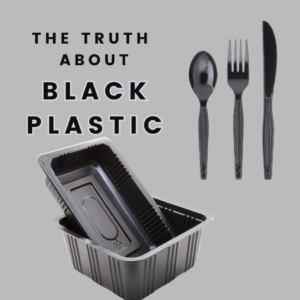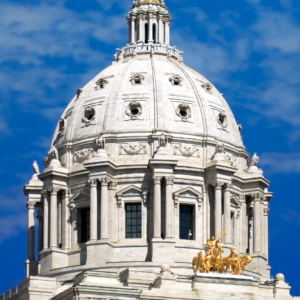February 21, 2024
Minnesota Senate
Environment and Natural Resources Finance and Policy Committee
Re: Beverage Container Refund Program (HF3200-DE1)
Dear Chair Hansen and Members of the Committee,
We are submitting this letter of support for the Beverage Container Refund Program (HF3200) as part of our commitment to improving recycling and reducing waste in Minnesota.
Eureka Recycling is a non-profit, social enterprise, recycler here in the Twin Cities. We are a proud union shop with union mechanics and drivers. Our team sorts 100,000 tons of residential recyclables each year into 15 different commodities that support our local supply chain. About 80% of our feedstock is turned into new products here in Minnesota and 90% in the greater Midwest. We work to demonstrate that recycling can and should be done in ways that benefit our environment, communities, and the regional economy.
The Beverage Container Refund Program is a much needed complementary program to the Packaging Waste & Cost Reduction Act. Both bills aim to improve human and ecological health by reducing waste and improving recycling systems. While the Packaging Reduction bill ensures that producers are covering the cost of the end of use of their packaging, we know that a recycling refund system (commonly known as a “bottle bill” or “deposit return system”) can uniquely and substantially increase capture, reuse, and recycling rates for beverage containers and do so much more rapidly. In fact, according to data from the Container Recycling Institute, states with bottle bills have a beverage container recycling rate of around 60%, while non-deposit states only reach about 24%.
The Beverage Container Refund Program will:
Increase Recycling Rates: Minnesota is sending too many bottles and cans to landfills and incinerators. According to a recent report, we are recycling only 55% of aluminum, 46% of glass, and 27% of #1 PET plastic. A deposit return on beverage containers will incentivize consumers to return beverage containers for bottle-to-bottle recycling or reuse within an established reuse and refill system. This is a proven model, with nine of the 10 states with the highest recycling rates having recycling refund systems.
Keep Material Recovery Facilities (MRFs) Whole: States with bottle bill programs, put those programs in place decades ago, and their recycling systems and infrastructure was developed alongside these programs. With this bill, Minnesota is in a position to innovatively lead the nation in recycling, by being the first state to develop a curbside compatible program. The bill takes the following steps to keep our local curbside recycling programs whole:
- Compensates MRFs for Curbside Recycled Beverage Containers: Looking at other states with bottle bill programs, we know that many residents still recycle a percentage of their beverage containers at the curbside. However, with a Recycling Refund program, MRFs will see less beverage containers coming through the curbside program. The DE1 amendment addresses concerns about recyclers losing the most valuable materials to redemption centers. This bill ensures that MRFs are compensated a processing fee, based on 80% of the refund value, for containers that will continue to come through the curbside system, making up the difference for the containers lost to the redemption centers and far exceeding the amount MRFs are currently receiving in the marketplace. Using our own economic modeling, we found that this processing fee will keep MRFs whole.
- Supports Needed Upgrades to MRFs: Not only will the MRF remain whole, our modeling shows that the processing fee will also provide the financial support needed for MRFs to make necessary upgrades to meet composition changes while also ensuring that we have a guaranteed market for our beverage container feedstock.
- Promote High Bale Quality: In order to receive the processing fee, MRFs must meet quality standards that are standard in our industry. Bales must meet ISRI SPEC, which MRFs are accustomed to achieving.
Sets Strong Redemption Targets & Mechanisms for Enforcement: The bill sets much needed redemption targets, requiring that the organization redeem 85% of all beverage containers within the first 6 years of the program.
Creates an Equity and Access Advisory Board: Waste pickers or canners are essential workers within bottle bill programs. Unfortunately, their work is often marginalized. The Equity and Access Advisory Board provides an avenue for their voice to be heard and hopefully will lead to a program that promotes social inclusion, labor protections, environmental awareness, and economic power among canners. However, language around this issue needs to be strengthened, which we have added below.
Outstanding Issues that Need to be Addressed:
Reuse and Refill Requirements – beverage containers are an ideal packaging type for a reuse/refill program. Any Recycling Refund program needs to include both a funding stream for reuse infrastructure and reuse targets. Similar programs in countries around the world have shown that reuse/refill plays a key role in reduction and can be scaled across our state.
Protect and Empower Canners: While the language is making steps towards this, improvements can be made to ensure canners and their organizations gain access to improved labor and social protection. “Canners” should be defined in the legislation and a person representing canners should be added to both the equity and access advisory board and the operations advisory board. Additionally, language needs to be amended to ensure that non-profit organizations and local community groups, established to collect beverage containers, have the mechanisms and supported needed to do so.
Stronger Convenience Standards: All Minnesotans should be able to easily return their beverage containers and claim their refunds. More specific convenience standards are needed that take into account geography and population density.
Expanding the Operations Advisory Board: This board should include a representative of labor within the system’s formal or informal workforce and representative of consumers or canners redeeming containers through the system.
The Beverage Container Refund Program is a key policy for increasing our recycling rates, keeping resources in the ground, and reducing waste. We are happy to provide additional information on any of the pieces we have mentioned above and appreciate your consideration of our comments.
Sincerely,
Director of Policy & Advocacy
Eureka Recycling
Share this Story!

Eureka Recycling Celebrates 20 Years and Facility Upgrade
This Earth Day, we are proud to celebrate two major milestones:two decades of pioneering mission-driven materials processing and the launch

Ditching Black Plastic
Black plastics are bad news. They’re toxic, and they’re not recyclable. So why are we still using them for

We Need Action on Electronic Waste
Residents across Minnesota need free and equitable access to electronics and battery recycling. Take Action Now. Legislation enacted in 2007

Our 2025 Policy Platform: Advancing Zero Waste Solutions
As the 2025 Minnesota legislative session kicks off this month, communities around the country continue to feel the impacts of
